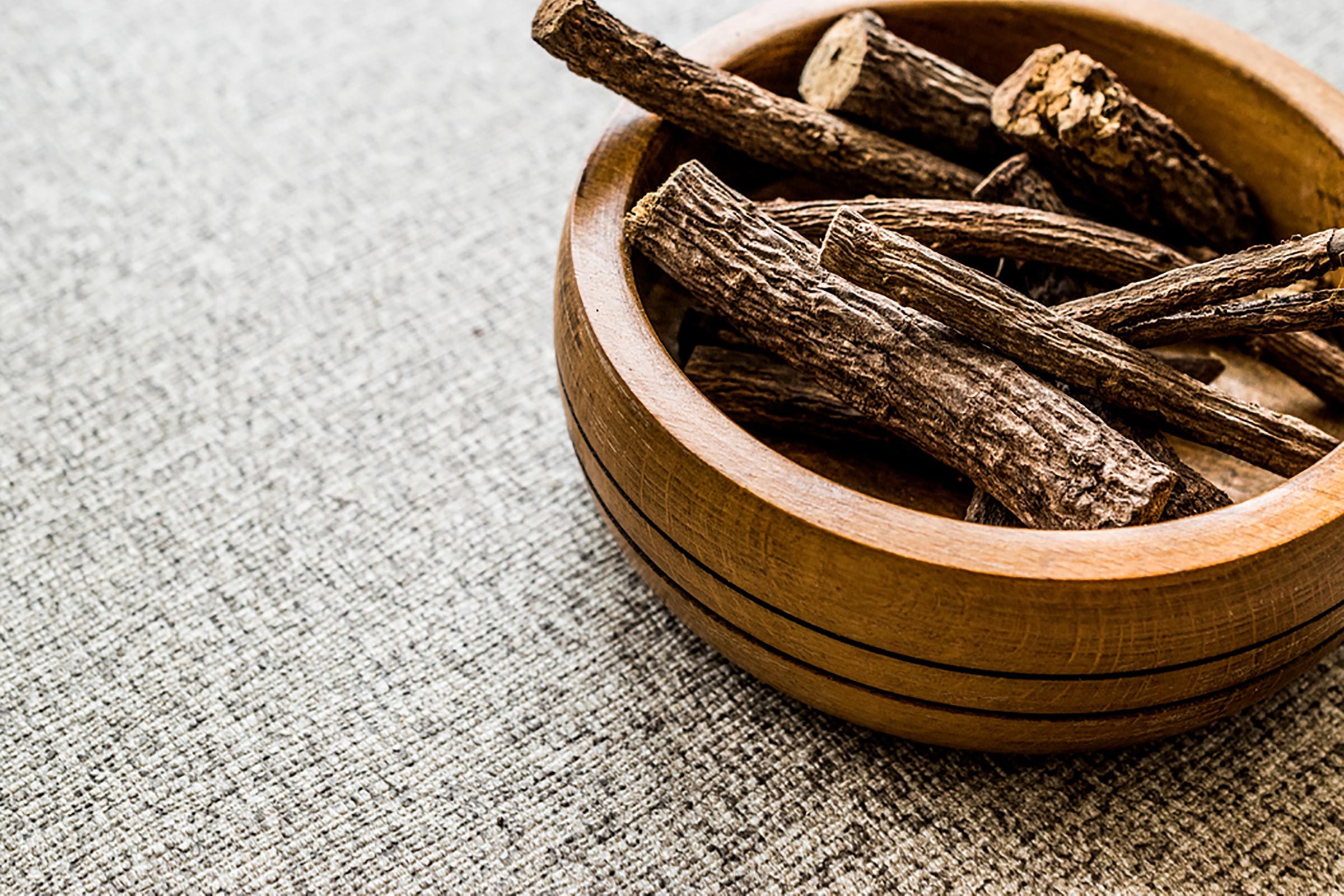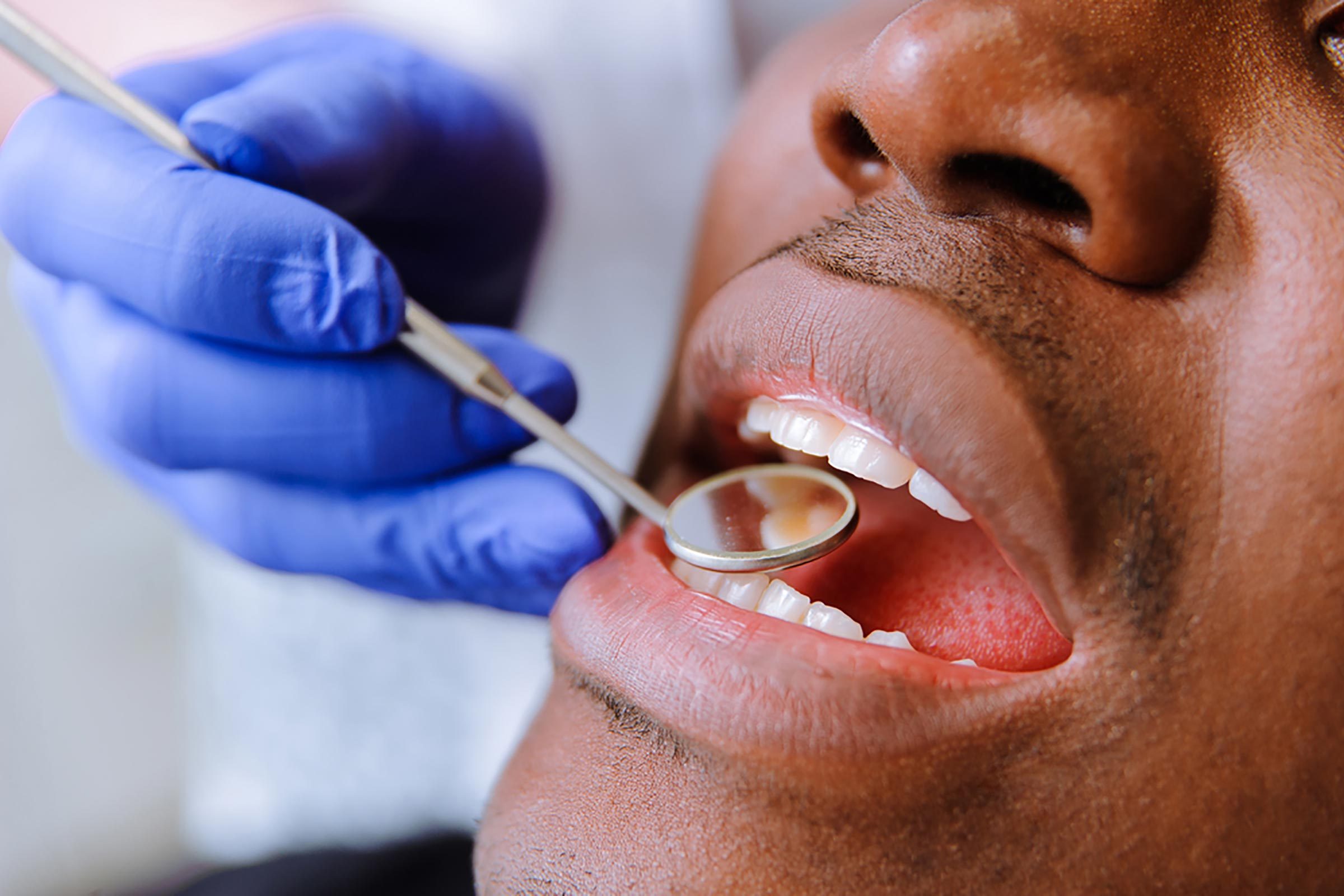
What exactly is licorice?
When you think of licorice, your first thought may be of those black jelly beans that you always threw away in favour of the more fruity flavours. But licorice root is an herb that contains many bioactive compounds, the most prominent being glycyrrhizic acid. It has been used for centuries for its medicinal benefits, and it is available in many forms, including licorice extract, powder, and tea.

Possible side effects of eating too much licorice
Although licorice root can be a healthy addition to your diet, it’s important to note that there is the possibility of too much of a good thing. “If excess licorice is consumed, it may lead to dangerously low potassium levels, which can lead to heart conditions as well as muscle weakness,” says Julie Upton, MS, RD. The herb can be contraindicated for many people who have specific medical conditions or take certain medications that will interact with its bioactive compounds. For example, certain heart disease medications should not be taken with licorice, as well as individuals with some kidney conditions.”
The U.S. Food and Drug Administration warns that for people over 40, eating two ounces of black licorice a day for at least two weeks could land you in the hospital, so limit the number of days you consume the herb and be sure not to consume more than two ounces at a time. If you have a history of heart disease and/or high blood pressure, be sure to closely watch the amount you consume. Otherwise, licorice root is safe to eat and can be used to benefit many aspects of your health.
Here are more facts about heart disease women need to know.

Licorice soothes your stomach
“Licorice is often used for GI symptoms including heartburn, stomach ulcers, colitis, and gastritis or any inflammation of the lining of the stomach or upper GI tract,” says Upton. It is a soothing anti-inflammatory, so it can help protect against ulcerative disorders. A small study published in the journal Evidence-Based Complementary and Alternative Medicine found that deglycyrrhizinated licorice (DGL) is a safe and effective alternative to over-the-counter stomach ulcer medications.
Try these natural remedies to make an upset stomach feel better.

Licorice fights against stress
If you’re someone who is stressed often, licorice root may help. In the medical journal Molecular and Cellular Endocrinology, the herb was found to help the body more efficiently regulate the stress hormone cortisol.
Learn to spot the silent signs of stress.

Licorice improves respiratory health
“Licorice can be used for the treatment of severe respiratory issues, including cough, sore throat, asthma, and bronchitis,” says Rebecca Park, RN, founder of the website remediesforme.com. It not only may help provide alleviation from upper respiratory infections caused by bacteria, but it can help get rid of mucus from the lungs and help relax bronchial spasms.
Check out more ways to manage your asthma.

Licorice boosts your immunity
One study published in the journal Food Chemistry found licorice to have “antioxidant, free-radical scavenging, immunostimulating” properties.
Don’t miss these other habits to boost your immune system.

Licorice improves your skin
“Licorice is beneficial for the skin when used internally and externally,” says Park. “It helps to heal skin ailments such as eczema, psoriasis, inflammation, sunburn, persistent skin redness, and athlete’s foot.” Topical solutions with licorice extracts can be used in relieving swelling and itchy skin.
Make sure you don’t ignore these important skin changes.

Licorice improves your dental health
This multipurpose herb may also help keep your teeth and gums healthy. One study from the Journal of Natural Products found that licorice root contains two effective antibacterial compounds that can prevent the growth of bacteria connected with cavities and gum disease.
These are the signs of disease your teeth can reveal.